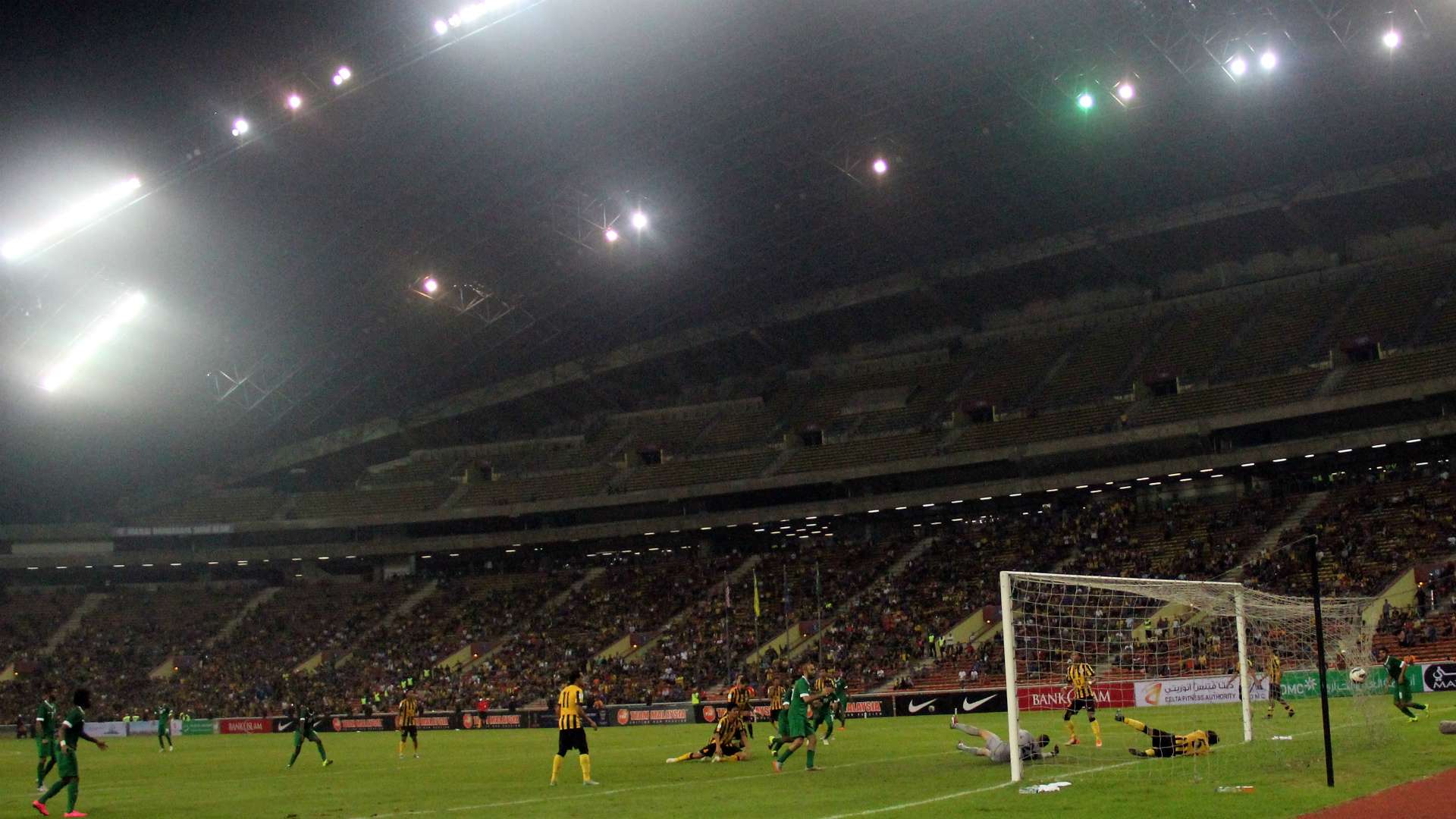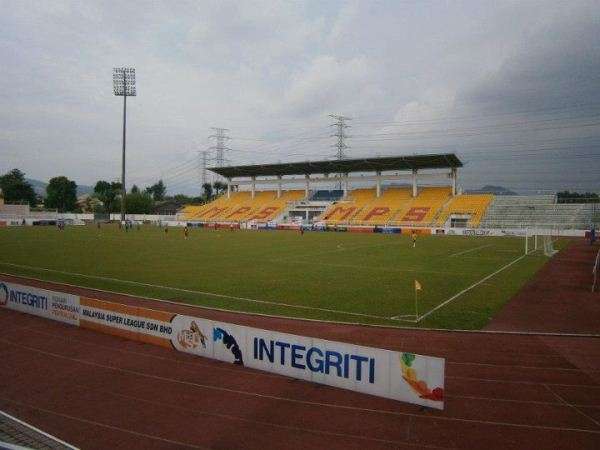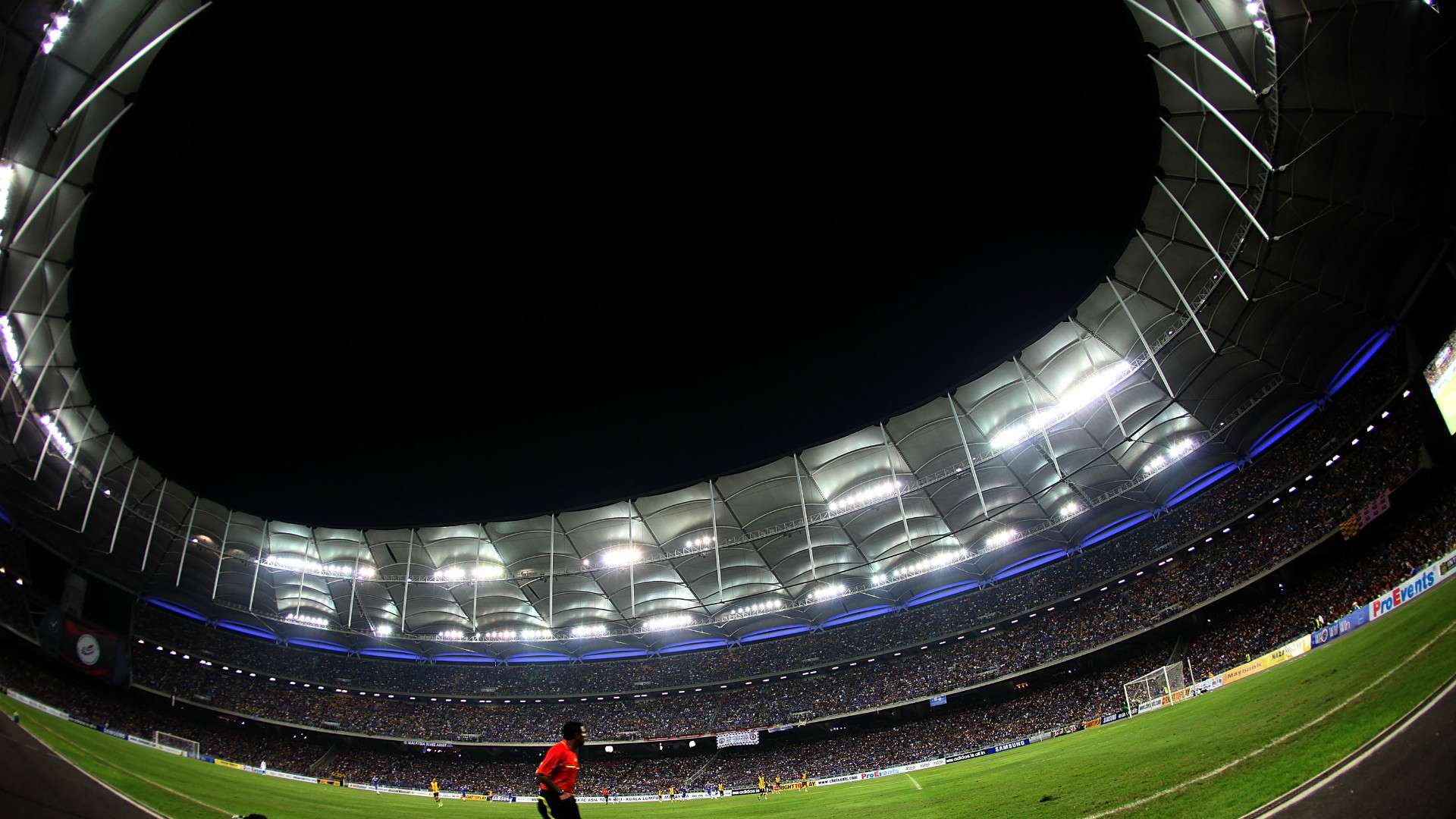
The men's football event at the 2017 SEA Games is spread over three venues. While the refurbished Bukit Jalil Stadium is the centrepiece of the event, here’s a lowdown on all the stadiums that will host the beautiful game:
Bukit Jalil National Stadium
Capacity: 90,000
In the early 1990s, there was cause for celebration for Malaysia, when the country was given hosting rights of the 1998 Commonwealth Games. This was to be the first time that a non-English speaking nation, and an Asian country, had been designated the task of organising the grand quadrennial event in its 68-year history. Kuala Lumpur, the capital, was to be the centre of the Asian sporting world in September 1998.
It was an ideal opportunity for Malaysia to make its mark on world sport. Yet for that, certain changes were in order. Topping the list was a need for a new multi-sport complex. And so, on January 1, 1992, the Kompleks Sukan Negara, or the National Sports Complex broke ground.
The complex was to include an indoor stadium, a hockey stadium, swimming and squash facilities. But the jewel of the project was always going to be the Bukit Jalil National Stadium. The multi-purpose arena, till date, has been regarded as the best football stadium ever built in the country. It was a structure that was expected to capture the imagination of sporting enthusiasts.
Surely enough, shortly after the 1998 Commonwealth Games, the stadium became the home of the national football team, taking over from the Shah Alam Stadium. It has since been the venue for the season ending Malaysian FA Cup final.
Now the stage will be set for the South East Asian Games, a competition Bukit Jalil National Stadium knows a lot about. After all, the venue was again the main host of the same tournament back in 2001, when Malaysia lost by a single goal to Thailand in the final of the football event. It will be the main venue for football at the 2017 SEA Games, which features 11 teams, and will host the semi-final and final stage should Malaysia reach that far.
The stadium was renovated for the SEA Games and the stadium, which had a capacity of over 87,000, can now hold approximately 90,000 people. Its prestige remains high in Asian football, as the venue featured among the marquee stadia that was involved in the hosting of the 2007 AFC Asian Cup. Yet it isn’t a venue meant strictly for competitive football. English Premier League giants Manchester United, Liverpool (twice), Chelsea and Arsenal have ventured to the Malaysian capital to play pre-season matches at the stadium.

Shah Alam Stadium
Capacity: 80,000
 Getty Images
Getty Images
Built in 1994, it was the biggest stadium in Malaysia before the National Stadium in Bukit Jalil came up. The hulking structure sits in the eastern part of the city of Shah Alam. It also has facilities to host athletics and karting events. The former home stadium of Selangor FA, it played host to the Malaysia Cup in 2011 and 2015.
Malaysian football fans have also flocked to the venue to see a few famous European clubs. When the stadium was inaugurated in 1994, Bayern Munich and Leeds United played featured in an invitational tournament. They have since also hosted Chelsea (in 2008) and Arsenal (in 2011), with the Premier League teams stopping over during their pre-season tours.
At the 2017 SEA Games, the Group A matches will be played here. Hosts Malaysia have been drawn in the group, along with Singapore, Laos, Myanmar and Brunei. If Malaysia does not make it to the final four, the Shah Alam stadium will also host the semi-finals and finals of the event.
Majlis Perbandaran Selayang Stadium
Capacity: 16,000
 Soccerway.com
Soccerway.com
Situated north of Kuala Lumpur, the compact stadium is the home of Malaysian Super League team Selangor FA. The team, known as the ‘Red Giants’, moved out of the Shah Alam stadium in 2016 due to financial issues. Built at a cost of RM 25 million, the multi-purpose stadium was opened in 1999.
The Selayang stadium will host Group B, which consists of defending champions Thailand, Indonesia, Vietnam, Philippines, Cambodia and Timor Leste.




.jpg?auto=webp&format=pjpg&width=640&quality=60)